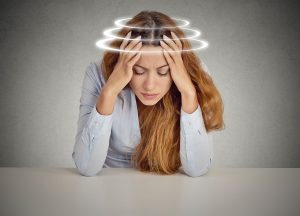Understanding Dehydration and its Effects on the Body Dehydration is a condition where the body loses more fluids than it takes in. This imbalance can lead to a range of health issues, including headaches. Our bodies are composed of approximately 60% water, and maintaining this balance is crucial for overall health and well-being. When we
Understanding Dehydration and its Effects on the Body
Dehydration is a condition where the body loses more fluids than it takes in. This imbalance can lead to a range of health issues, including headaches. Our bodies are composed of approximately 60% water, and maintaining this balance is crucial for overall health and well-being. When we become dehydrated, our bodies lack the necessary fluids to function optimally, leading to various symptoms, one of which is headache. Need to Explore More About Health Problems And Their Solutions (Pee Urgency When To Get Home)
The Connection Between Dehydration and Headaches
Headaches are a common symptom of dehydration and are often one of the earliest signs that the body needs more fluids. When we are dehydrated, the brain temporarily contracts or shrinks from fluid loss. This contraction can cause the brain to pull away from the skull, leading to pain and discomfort, commonly experienced as a headache.

Image by: yendex.com
Types of Headaches Associated with Dehydration
Dehydration can trigger different types of headaches, including tension headaches and migraines. Tension headaches typically cause a dull, aching pain around the temples or the back of the head and neck. On the other hand, migraines are characterized by intense, throbbing pain, often accompanied by nausea, vomiting, and sensitivity to light and sound. Both types of headaches can be exacerbated by dehydration.
Other Symptoms of Dehydration
In addition to headaches, dehydration can manifest in various other symptoms, including:
- Thirst
- Dry mouth and lips
- Dark-colored urine
- Fatigue
- Dizziness or lightheadedness
- Reduced urine output
- Dry skin
- Confusion or difficulty concentrating

Image by: yendex.com
Preventing Dehydration-Induced Headaches
Preventing dehydration is key to avoiding the associated headaches. Here are some tips to help maintain proper hydration levels:
1. Drink Plenty of Water Throughout the Day
The easiest way to prevent dehydration is to drink an adequate amount of water regularly. Aim for at least eight 8-ounce glasses of water per day, but adjust your intake based on factors such as activity level, climate, and overall health.
2. Monitor Your Urine Color
Your urine color can indicate your hydration status. Ideally, urine should be pale yellow. Dark yellow or amber-colored urine may indicate dehydration and a need to increase fluid intake.
3. Eat Water-Rich Foods
In addition to drinking water, consuming foods with high water content can contribute to your overall hydration. Fruits and vegetables such as watermelon, cucumber, oranges, and strawberries are excellent choices.
4. Avoid Excessive Caffeine and Alcohol
Caffeine and alcohol can have diuretic effects, increasing urine production and potentially leading to dehydration. Limit your intake of caffeinated and alcoholic beverages, especially in hot weather or during physical activity.
5. Pay Attention to Your Body’s Signals
Listen to your body and recognize the early signs of dehydration, such as thirst and dry mouth. If you experience a headache, consider whether could be a contributing factor and take steps to rehydrate.

Image by: yendex.com
When to Seek Medical Attention
In most cases, mild dehydration can be corrected by increasing fluid intake. However, severe requires prompt medical attention. Seek medical help if you experience:
- Severe or persistent headaches
- Rapid heartbeat
- Fainting or lightheadedness
- Confusion or irritability
- Inability to keep fluids down
Dehydration-Induced Headache Types
| Symptom | Tension Headache | Migraine |
|---|---|---|
| Pain Type | Dull, aching | Intense, throbbing |
| Location | Temples, back of head and neck | One side of head, may spread to one eye |
| Duration | Hours to days | 4 to 72 hours |
| Associated Symptoms | None | Nausea, vomiting, sensitivity to light/sound |
Conclusion
Dehydration is a common yet preventable condition that can lead to headaches and other health issues. By staying hydrated and paying attention to your body’s signals, you can reduce the risk of dehydration-related headaches and maintain optimal health and well-being.
Remember to prioritize hydration by drinking plenty of water, eating water-rich foods, and avoiding excessive caffeine and alcohol consumption. Listen to your body, and seek medical attention if you experience severe symptoms. By taking proactive steps to stay hydrated, you can keep headaches at bay and enjoy a healthier, more vibrant life.
















